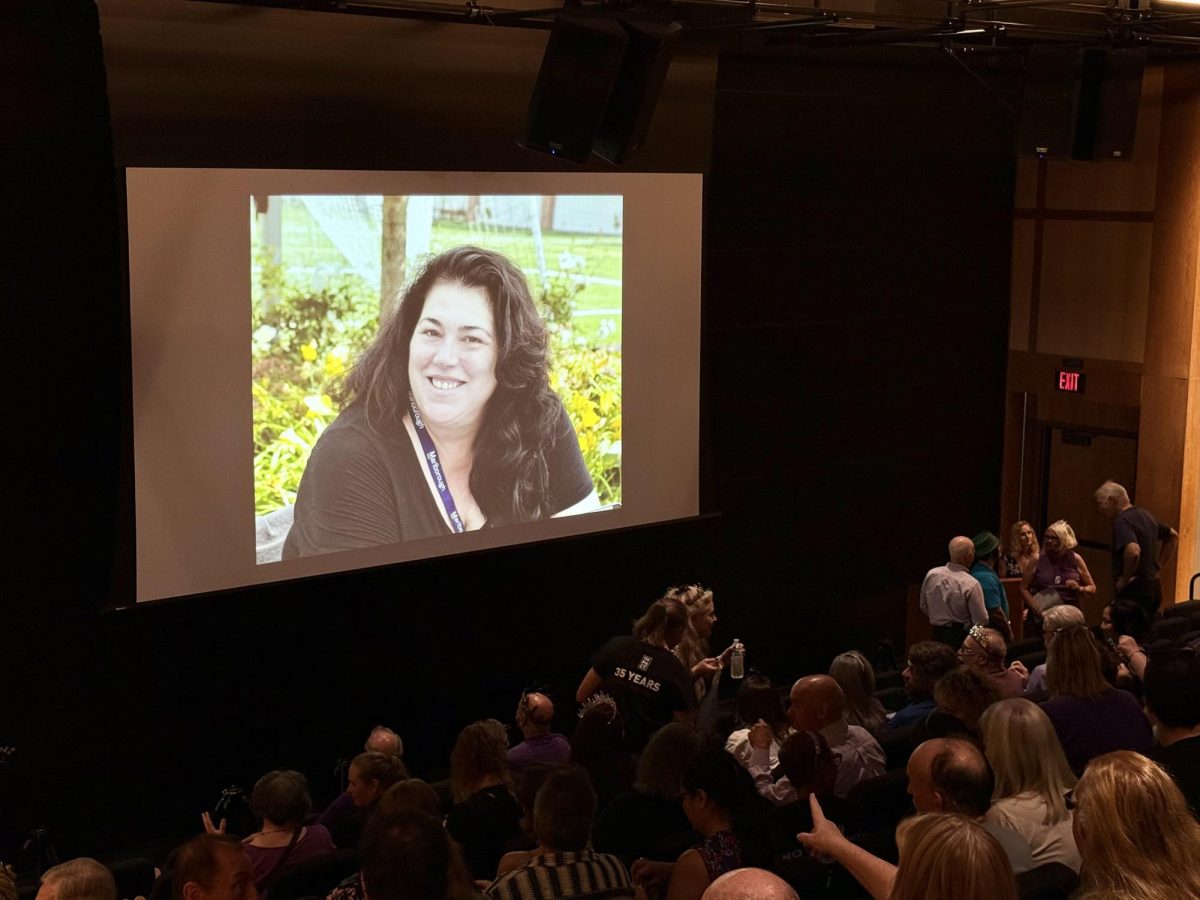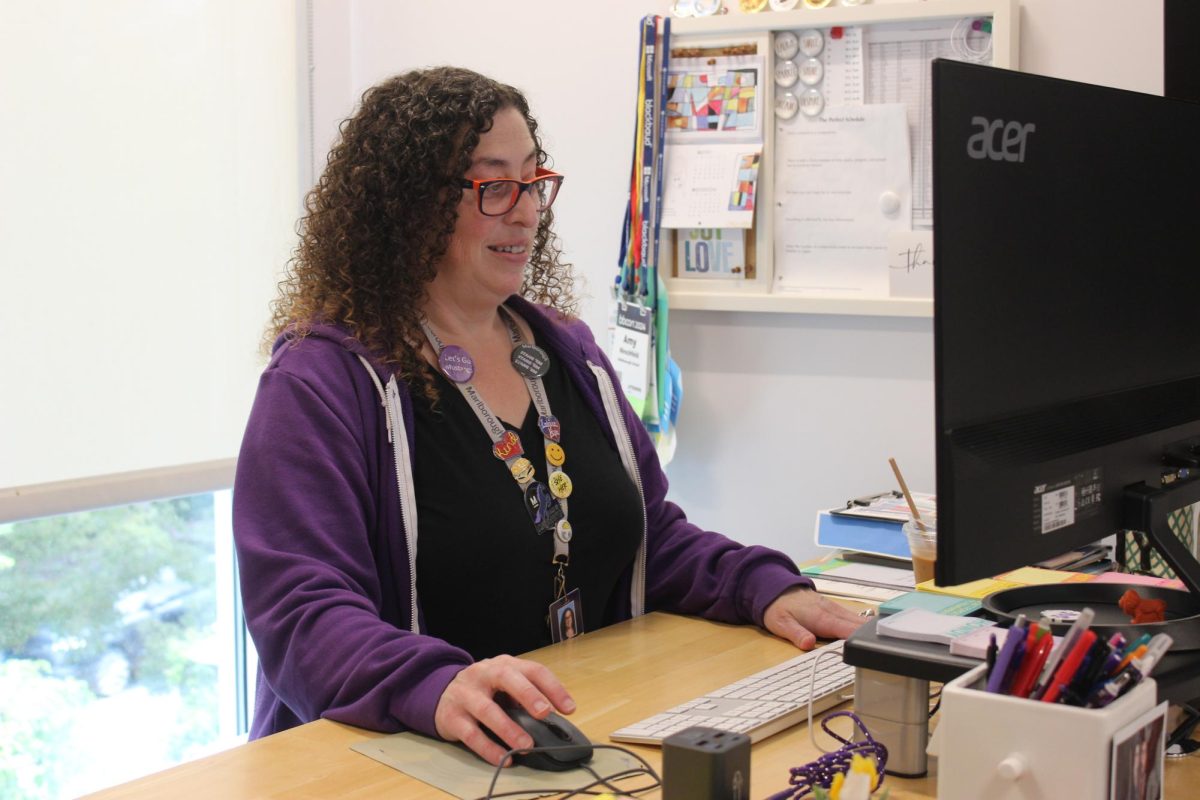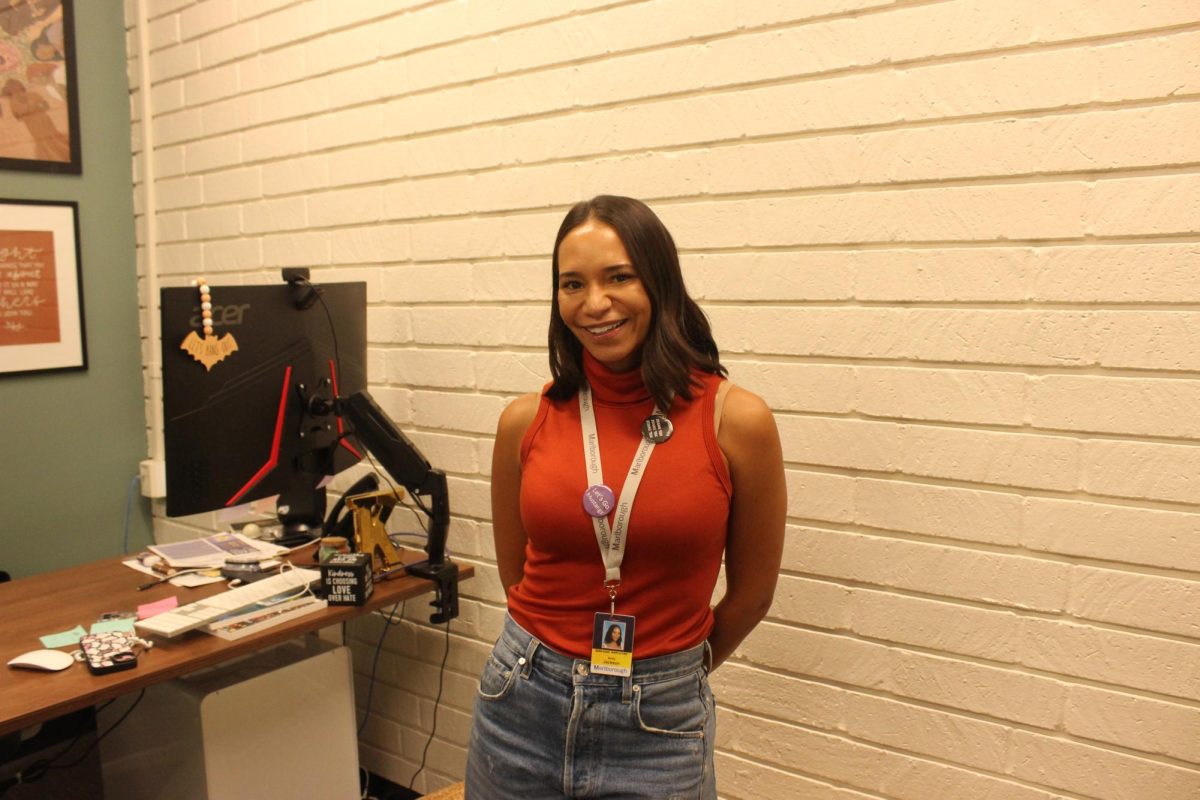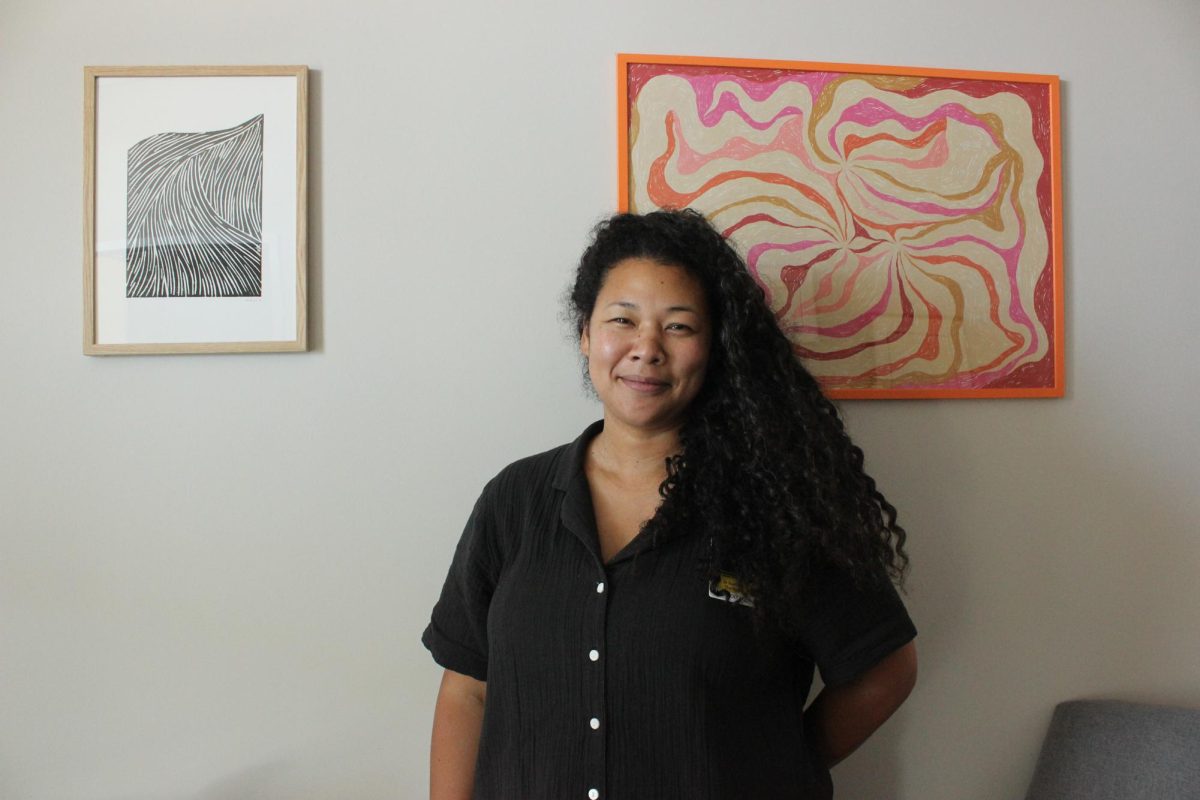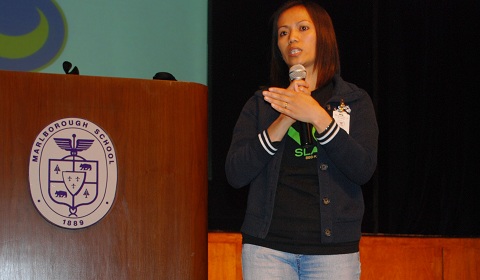
Coalition to Abolish Slavery and Trafficking (CAST)’s Director of Partnerships Vanessa Lanza and Survivor Organizer Ima Matul spoke at an All-School Meeting in Caswell Hall hosted by Human Rights Club on Dec. 10, Human Rights Day, to educate the community on the seriousness of human trafficking. Matul’s moving story of being held captive for three years without pay led many students and employees to tears as they took to heart her situation and realized that modern slavery still exists in the United States.
“Modern-day slavery is here [in LA]. We are taught that slavery is over, but that is not the case. It’s hidden, and we all need to keep a better eye out for it,” Lanza said.
CAST’s mission, according to their website, is “To assist persons trafficked for the purpose of forced labor and slavery-like practices and to work toward ending all instances of such human rights violations.” Many students were surprised to hear that, according to CIA estimates, somewhere between 15,000 and 17,000 adults and children are trafficked into the United States every year.
“I couldn’t really believe that that many people are still being trafficked into the US or in general. It’s amazing that any form of slavery still exists,” Margaret ’14 said.
Matul moved from Indonesia to California in 1997 to work as a maid for two years, expecting to earn $150 and have one day off per month. Even this meager salary, however, was not actually paid to Matul. She never received any money or time off, and she spent her days trapped in a home where she was emotionally and physically abused by the parent of two current students at a very prominent LA independent school. Matul estimates that her former boss’ eldest son is a senior now but was only in contact with Matul during his infancy. Whether he has any recollection of the human trafficking that happened in his household is unknown, but the memories have not left Matul. “Whenever I [saw] a sharp object, I [was] scared, since in my mind I think of what would happen if [my boss] threw or hit me with that object. When she got mad she would grab anything that was around her and throw it at me,” Matul said.
Finally, Matul was able to sneak her neighbor’s nanny a letter asking for help to escape, a letter which she had been secretly working on for months. Even though Matul was often crying and at one point had to get stitches because her trafficker hit her head, no one had noticed or reported these signs of abuse. After learning about Matul’s situation her neighbor immediately came to Matul’s rescue and introduced her to CAST.
However, the abuse Matul had suffered has not yet been absolved, since the trafficker remains unprosecuted. When she first escaped, Matul was not emotionally stable enough to press charges against her trafficker, and since the statutory limit sets a maximum time after an event that legal actions may be initiated, Matul was not able to prosecute her trafficker. Matul sought help and collaborated with the FBI to help record a conversation with her trafficker and ultimately received the passport her trafficker took away from her at the airport. However, after 9/11, the FBI downgraded the importance of prosecuting trafficking crimes and shifted its focus to terrorism, forgetting about Matul’s case. Even though Matul’s passport was returned, she never got any of the salary she had been promised.
“[The government] should change the statutory limitation since [victims] are not in the right state to be able to prosecute right after the event,” Matul’s former neighbor and rescuer said. “Also I don’t understand why [the trafficker] couldn’t pay her.”
Matul’s story has inspired many people beyond the Marlborough community to take action to help stop modern human enslavement. For example, Matul’s former neighbor’s daughter became a lawyer who specializes in human trafficking cases.
Although years have past since she was enslaved, Matul still feels the emotional trauma.
She once spotted her former employer at the Grove and she immediately told her husband and family that they had to go home because she was not ready for them to see her. After the trafficker’s children have graduated, CAST plans to hold an assembly at that school, just like the one at Marlborough, to educate students about human trafficking.

